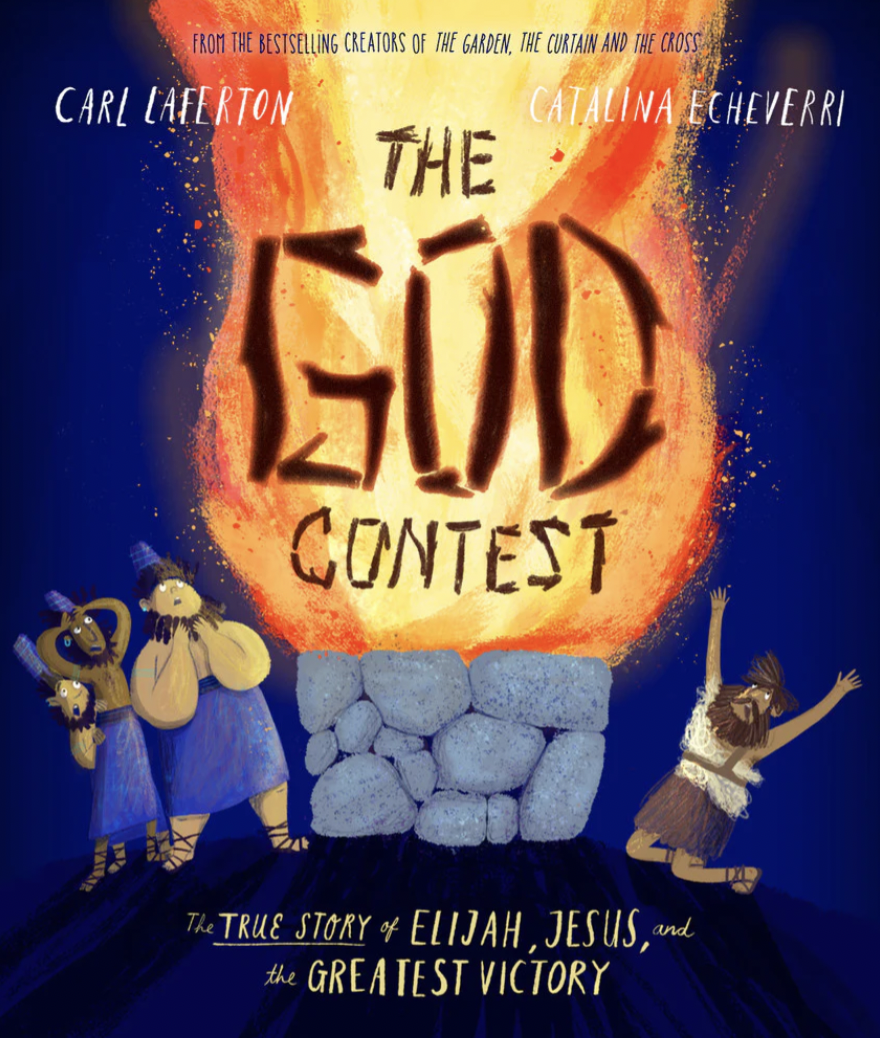This article is republished with permission from The Good Book Company.
Carl Laferton, the author of The Garden, the Curtain and the Cross shares 5 reasons to take kids back to the Old Testament.
1. They're exciting.
Fires on mountains. Warriors and battles. Lions not eating people and bears actually eating people. Queens and slave-girls speaking truth to power. The kids’ fiction shelves of your local bookstore (if it’s open) contain no stories more exciting than Old Testament narratives offer. Of course, these are not “just stories”—they’re true, they are part of the great overarching story of salvation, and they display God’s character—but they are also stories, and exciting ones.
2. They're fresh.
Rightly, the Gospels tend to be well-trodden paths for kids. They know Zacchaeus, the Good Samaritan, the nativity and passion accounts… and that’s great. But of course, the better we know something, the lower its capacity to grip and surprise us. Beyond Noah, Jericho, David and Goliath, Jonah and Daniel in the lions’ den, the Old Testament tends to be off the beaten track. Let it fire your kids’ imaginations and grip their hearts.
3. They’re about Jesus.
Old Testament narratives are never just about themselves—they always point us forward to the greatest King, the strongest Warrior, the gentlest Friend, the ultimate Lamb, the triumphant Rescuer. They show kids Jesus.
As Sally Lloyd-Jones so wonderfully puts it, “every story whispers his name”—and many of them shout it. When Jesus wanted to explain to his friends who he was and why he’d come, he started with Moses, talked through the prophets, and “explained to them what was said in all the Scriptures [the Old Testament] concerning himself” (Luke 24 v 27).
So Old Testament narratives don’t only grip kids’ hearts with their own twists and turns—they show their hearts Jesus in fresh, powerful ways as they see what Alison Mitchell calls “Jesus Moments” in Jesus and the Lions’ Den.
Let Gideon’s victory in weakness point them to the cross. Let David’s wilderness years point them to Jesus’ days of temptation in the desert. Let Josiah’s godly-but-short rule point them to Jesus’ perfect-and-eternal reign. Let the fire on Mount Carmel in Elijah’s day point them to Jesus’ resurrection on Mount Zion. And so on, and so on, and so exciting.*
4. They’re divinely-inspired.
“Prophets, though human, spoke from God as they were carried along by the Holy Spirit” (2 Peter 1 v 21). It’s a simple point, but important. God’s Spirit wrote the Old Testament. It is no less important than the New. And so we do our children a disservice if we implicitly teach them that the New Testament has superseded the Old, or that anything before Matthew is hard and not worth looking at.
5. They’re family history.
By faith in Jesus, we are part of Abraham’s family (Galatians 3 v 29). So the Old Testament is not just the recounting of the people of Israel, Abraham’s descendants; it’s recounting the story of the people of God, and our spiritual ancestors. In their successes and (more often) failures, we see ourselves. In their need for a Saviour who can rescue and change them, we see our own need.
Most kids love hearing stories about family members who died before they were born. It gives them a sense of rootedness, reminds them that they belong to something bigger than them, and shows them that they come from somewhere and are continuing something. When they hear of Abraham, Jacob, Deborah, Abigail, Joab, Zerubabbel… it’s family. It’s God’s family. It’s our family story. And it’s still being written, as the baton that our ancestors passed on continues down through the generations and, we pray, is passed on to our kids.
* A great place to go to start seeing Jesus in the Old Testament is Glen Scrivener’s brilliant Reading Between the Lines daily devotional, Volume One.
—
Carl Laferton is the author of The God Contest, a beautifully illustrated hardback storybook for children aged 3-6, retelling two extraordinary events in history when the God of the Bible proved himself to be the one true God.

The God Contest takes children back to Elijah's time and the gripping "God contest" between the God of the Bible, Yahweh, and the false god Baal. Then it fast-forwards to a different mountain and another "God contest" at an empty tomb. The book invites kids, in a world of so many options, to decide with confidence to join Team Jesus.

